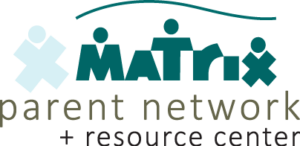
Transition to Adulthood Home > About > Six Essential Resources > Roadmap > County Specific Resources
Students who leave high school with a Certificate of Completion have the option of continuing their education with their home school district in a Transition to Adulthood program until age 22.
Transition to Adulthood public programs are usually managed by the County Office of Education and focus on transition services and supports to prepare young adult students for meaningful work and community experiences.
Programs could include instructional practices and student-focused planning to develop each student’s:
1. functional academic skills, including budgeting
2. self-care, independent living, and leisure skills
3. community engagement and appropriate social skills
4. vocational skills
5. pedestrian skills and travel training, including utilizing various modes of public transport
6. self-esteem and self-determination
Information on Transition programs can be found at County of Education websites:
Sonoma: https://www.scoe.org/pub/htdocs/specialed-transition.html
Marin: https://www.marinschools.org/Page/1528
Solano: https://www.solanocoe.net/departments/special-education/transitional-program-ages-18-22
Napa: Please consult individual Napa districts websites.
Private schools may also offer Transition to Adulthood programs as an extension of their high school programs. Examples include:
Anova in Santa Rosa: https://www.anovaeducation.org/page.cfm?p=790
Star Academy in San Rafael: https://www.staracademy.org/posthighschool
Cypress School in Petaluma: http://cypress-school.org/programs/transition-services/
The IEP team will discuss Transition program options for students receiving a Certificate of Completion at a transition IEP meeting. This meeting is held sometime in the spring of the young adult’s senior year in high school. The young adult may choose not to attend a Transition program, exit their school district’s Special Education program, and continue on to Adult Services at the age of 18. At age 18, Regional Centers may or may not provide the full range of services they provide when a young adult turns. Please consult with the appropriate Regional Center coordinator if the young adult is thinking of attending an alternative Transition program, including college programs for people with developmental disabilities.
Copyright @ 2023 Matrix Parent Network and Resource Center. All rights reserved.
www.matrixparents.org Matrix Parent Network & Resource Center is a 501(c)(3) non-profit organization.
